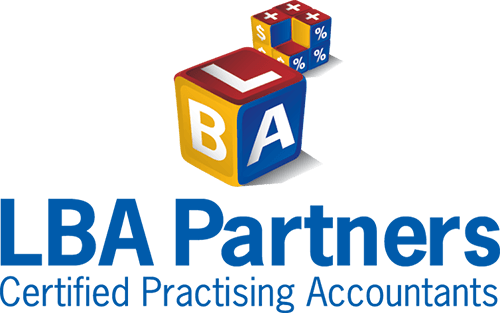Here's our latest newsletter, if you would like to follow up any of the information please contact Linda or Grahame
P r a c t i c e U p d a t e
April 2015
ATO super crackdown – child care, building, cleaning, pubs
The ATO has identified employers in the following industries as having a higher risk of not meeting their super obligations:
- child care services;
- building and industrial cleaning; and
- pubs, bars and taverns.
The ATO is currently running an education campaign for business owners in these industries to help them better understand their super obligations.
It will be undertaking audits from July 2015 of employers who continue to not meet super obligations for their employees.
The ATO is also reminding directors of companies that are required to pay Superannuation Guarantee (SG) for their employees, that they may be personally liable for any unpaid or unreported SG Charge liabilities of their companies.
Inappropriate loans from super funds
The ATO has issued a guide for trustees of self-managed superannuation funds (SMSFs) that asks:
"Has someone asked you to invest your SMSF funds into a trust, company or investment product, and then offered to lend some or all of that money back to you, your company or any entity you control?"
If the answer is 'yes', then it is likely this arrangement contravenes superannuation laws.
What's wrong with this type of arrangement?
The ATO understands that some individuals and organisations are promoting arrangements where SMSF monies are deposited into unit trusts or pooled investment trusts, less a management fee.
This money is then used to obtain a personal or business related mortgage, which results in the SMSF assets being used to provide members with current-day benefits.
That is, the primary purpose of such arrangements is to enable individuals and any associates to use their super savings to provide assistance to members or relatives.
As such, the ATO is currently closely scrutinising these lending arrangements, and it reminds trustees that these arrangements would breach the sole purpose test, as the SMSF is being used for a purpose other than providing retirement benefits for members.
ATO's audit targets
Editor: The ATO has set up a new page on its website called "Building confidence", which talks about its current compliance activities, and the amounts of tax and penalties it has collected in 2014 from its various initiatives.
Some of the areas that the ATO has stated it will be focusing on are:
- Work-related expenses:
– motor vehicle expenses for travelling between home and work;
– overnight travel; and
– the work-related proportion of use for computers, phones and other electronic devices.
- Rental property expenses:
– excessive deductions being claimed for holiday homes (deductions should be limited to the amount of income earned, or to the number of days actually rented out at a commercial rate);
– husbands and wives inappropriately splitting rental income and deductions for jointly owned properties; and
– interest deductions being claimed for the private proportion of loans.
- Cash economy:
– the building and construction industry; and
– the restaurant, café and takeaway industry.
- Contractors – employers misusing contracting arrangements with the intention of avoiding employment overheads.
Contractor payments data matching program
The ATO has announced that it will continue to acquire details of entities that receive contractor payments from other businesses for the 2013/14, 2014/15 and 2015/16 financial years.
The data that will be obtained includes:
- Australian Business Number (ABN) of the payer business;
- ABN of the payee business (contractor);
- Name, address and telephone details of the contractor;
- Dates of payments to the contractor; and
- Amounts paid (including details of whether the payment included GST).
The ATO estimates that records for approximately 25,000 entities will be obtained each year, including the records for approximately 12,500 individuals.
The purpose of this data matching program is to ensure that taxpayers are correctly meeting their taxation obligations in relation to contractor payments.
Eligibility for net medical expenses tax offset
The ATO has reminded taxpayers that the net medical expenses tax offset (NMETO) is being phased out.
To be eligible for the NMETO for 2014/15, a taxpayer must have received an amount of the tax offset in both of their 2012/13 and 2013/14 income tax assessments.
If a taxpayer's 2012/13 notice of assessment shows an amount of zero for NMETO, they wouldn't have received this offset in that year and so are not eligible to make a claim in 2013/14 or 2014/15.
However, the eligibility rule for the NMETO does not apply to clients with out-of-pocket medical expenses relating to disability aids, attendant care and aged care (these expenses can continue to be claimed until 30 June 2019).
Property developers – be careful what you wish for, from the outset
Editor: A recent case before the Administrative Appeals Tribunal (AAT) involved a taxpayer who tried to argue that profit from the sale of two properties should be treated as a capital gain (meaning they would get the 50% CGT discount), even though they had originally acquired the land for the purpose of developing it and reselling it at a profit. "No way" said the taxman!
The taxpayer acquired two adjoining properties in Brisbane, hoping to develop the two parcels as part of a joint venture with another large property developer. However, negotiations broke down and the joint venture proposal came to nothing.
The taxpayer rented out the two properties in their unimproved state. Shortly before their sale in the 2013/14 year, to improve their resale value, the taxpayer obtained a development application (DA) in relation to the conjoined blocks.
The taxpayer asked the ATO for a private ruling in relation to the profit made on the sale of the properties, and the ATO stated that the sale was not simply the realisation of a capital asset: it was the end result (even if not the planned end result) of a commercial property development that commenced when the properties were acquired.
The AAT found that the sale occurred in the ordinary course of the taxpayer's business, which meant that profits generated by the sale should be brought to account as ordinary income.
Please Note: Many of the comments in this publication are general in nature and anyone intending to apply the information to practical circumstances should seek professional advice to independently verify their interpretation and the information's applicability to their particular circumstances.
Management Consulting
We have the know-how and experience to offer advice that helps you run your business more effectively.
Self-Managed Superannuation Funds
At LBA Partners we provide the professional advice you need to manage your own fund and greatly simplify the process for you.



